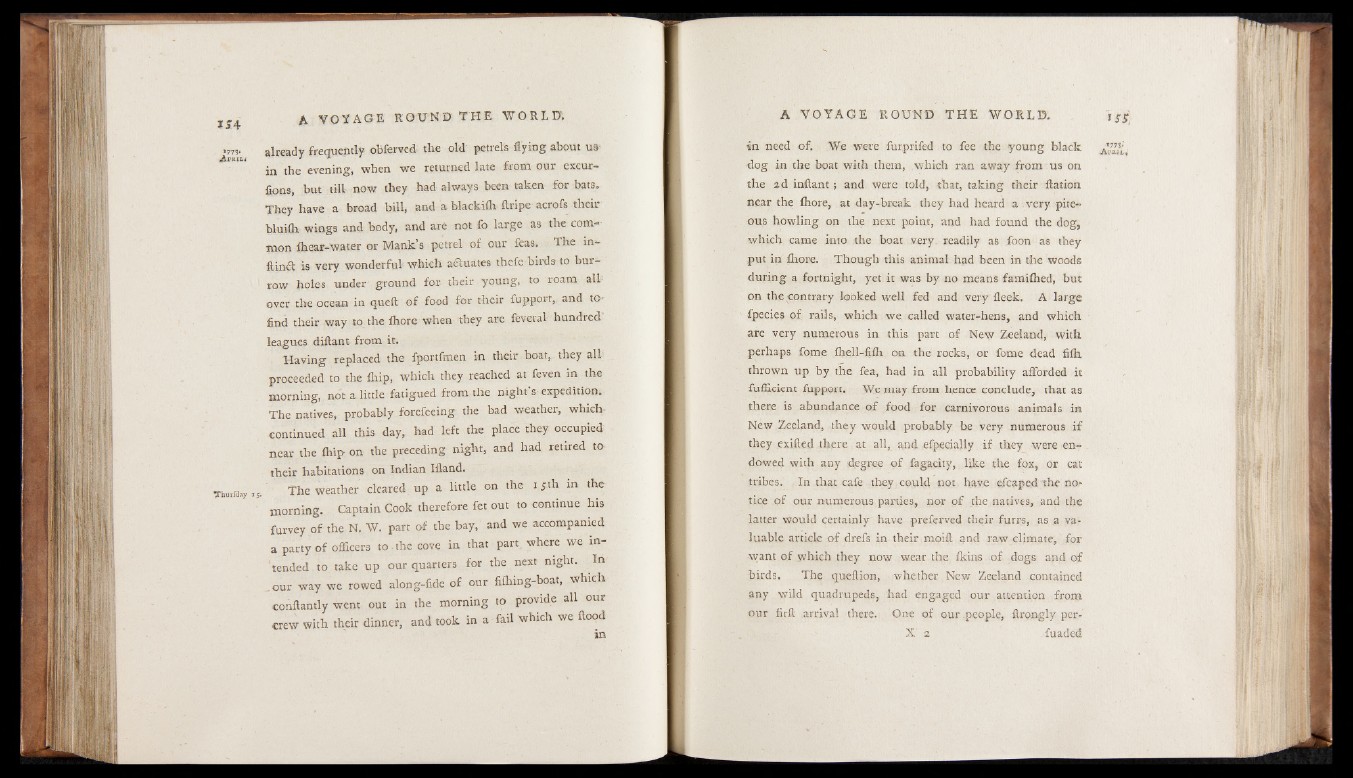
A1773* pril*
■JThurfday i
already frequently obferved tbe old petrels flying about us-
in the evening, when we returned late from our excur-
fions, but till now they had always been taken for bats.
They have a broad bill, and a blackifli ftripe acrofs their
bluifli wings and body, and are not fo large as the common
fhear-water or Mank’s petrel of our feas. The in-
ftinfl is very wonderful which actuates thefe birds to burrow
holes under ground for their young, to roam all
over the ocean in quell of food for their fupport, and to*
find their way to tire fliore when they are feveral hundred
leagues diftant from it.
Having replaced the fportfmen in their- boat, they all
proceeded to the Ihip, which they reached at feven in the
morning, not a little fatigued from the night’s expedition.
The natives, probably forefeeing the bad weather, which
continued all this day, had left the place they occupied
near the (hip on the preceding night, and had retired to
their habitations on Indian Illand.
The weather cleared up a little on the 15-th in the
morning. Captain Cook therefore fet out to continue his
furvey of the N. W. part of the bay, and we accompanied
a party of officers to the cove in that part, where we intended
to take up our quarters for the next night. In
.our way we rowed along-fide of our filhing-boat, which
conftantly went out in the morning to provide all our
crew with their dinner, and took in a fail which we flood
in
in need of. We were furprifed to fee the young black
dog in the boat with them, which ran away from us on
the 2d inftant; and were told, that, taking their Ration
near the fliore, at day-break they had heard a very piteous
howling on the next point, and had found the dog,
which came into the boat very readily as foon as they
put in fliore. Though this animal had been in the woods
during a fortnight, yet it was by no means familhed, but
on the contrary looked well fed and very fleek. A large
fpecies of rails, which we called water-hens, and which
are very numerous in this part of New Zeeland, with
perhaps fome fliell-fifli on the rocks, or fome dead fifli
thrown up by the fea, had in all probability afforded it
fufficient fupport. We may from hence conclude, that as
there is abundance of food for carnivorous animals in
New Zeeland, they would probably be very numerous if
they exifted there at all, and efpecjally if they were endowed
with any degree of fagacity, like the fox, or cat
tribes. In that cafe they could not have efcaped the notice
of our numerous parties, nor of the natives, and the
latter would certainly have preferved their furrs, as a valuable
article of drefs in their moift and raw climate, for
want of which they now wear the Ikins of dogs and of
birds. The queftion, whether New Zeeland contained
any wild quadrupeds, had engaged our attention from
our firft arrival there. One of our people, ftrongly per-
X 2 fuaded